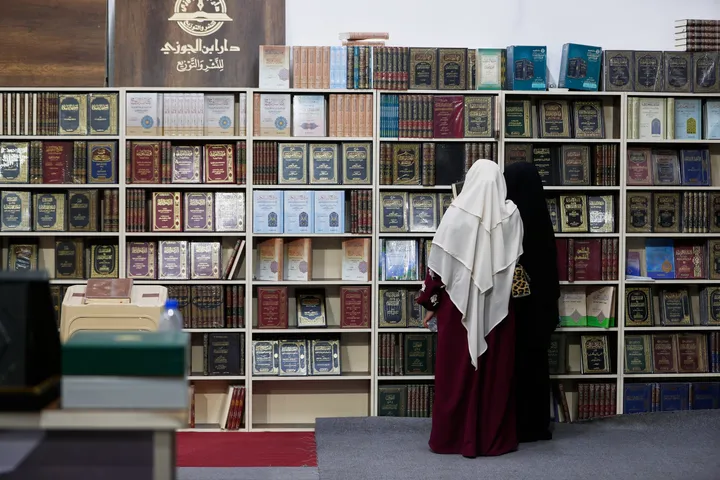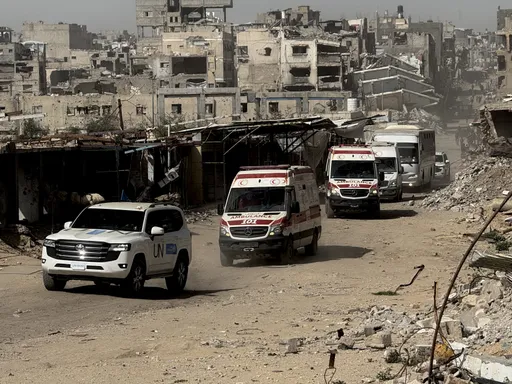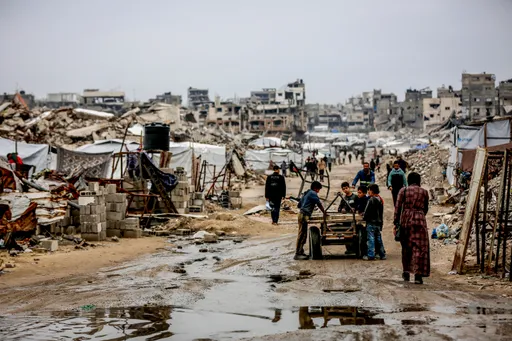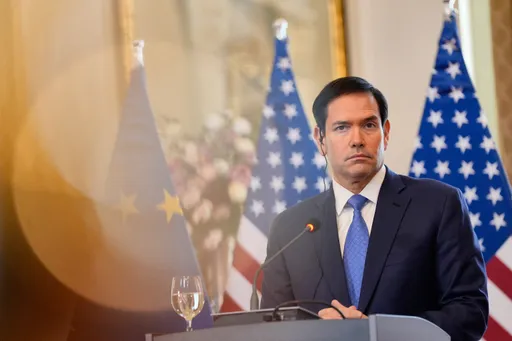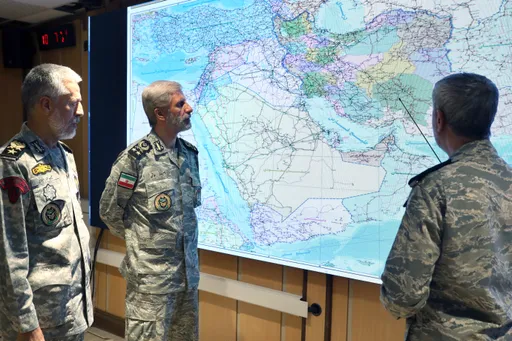Palestinians buried their dead on Saturday with calls on the Muslim world's intervention a day after a major demonstration was targeted by Israeli forces, killing at least 16 Palestinians and wounding over 1,400 in the bloodiest day since a 2014 war.
Israeli troops also fired warning shots towards Palestinian youths gathered at the Gaza-Israel fence, wounding 13 people, health officials said.
The "March of Return" and Land Day protest that began on Friday is on a larger scale and intended to involve families with women and children camping in tent cities near the border for weeks.
TRT World's Arabella Munro reports.
Land Day commemorates the deaths of six Arab civilians killed by Israeli troops during demonstrations over Israel's land confiscations in 1976.
The main focus of "March of Return" protests is a demand that Palestinian refugees be allowed the right of return to towns and villages which their families fled from, or were driven out of, when Israel was created in 1948.
Tens of thousands of Palestinians, pressing for a right of return for refugees to what is now Israel, are gathered along the fenced 65-km frontier.
On Saturday, thousands attended funerals for 14 of those killed — two were buried on Friday — with mourners holding Palestinian flags and some chanting "revenge".
'Where are you, Arabs?'
"Where are you, Arabs? Where are you, Muslims?" mourners chanted at one funeral, calling on the Arab and Muslim world to intervene.
"The Arab world in general sold our issue (Palestinian issue ) all of them sold it, no one remains to look after it. But as I said before, today we are here and we are waiting till 15 May," said Ibrahim Tlouli, a protester.
"If nobody solves our issue or finds us a solution, whatever that will be.... but at the same time we are here as young people hand in hand and united we will solve our issue alone and will not wait for anyone."
In addition to the 16 killed, more than 1,400 were wounded, 758 of them by live fire, with the remainder hurt by rubber bullets and tear gas inhalation, according to the Gazan health ministry.
No casualties were reported among Israelis.
The armed wing of Hamas that runs the Gaza Strip said that five of those killed were members who were participating "in popular events side-by-side with their people."
The six-week protest is in support of Palestinian refugees and the timetable holds significance for a range of reasons that have added to tensions.
TRT World spoke with journalist Mohammad Mansour who is reporting from Gaza-Israel border.
Protests continue
But while anger seethed over Friday's events, only several hundred protesters had returned to tents erected at different sites near the Gaza Strip's border with Israel by mid-afternoon to resume demonstrations planned to last six weeks in the blockaded enclave.
A general strike was also being held in both the Gaza Strip and the occupied West Bank.
Minor clashes between Israeli forces and Palestinians broke out in Hebron, while a small protest was held in Nablus, both in the occupied West Bank.
Protests will continue until the US opens its new Jerusalem embassy around May 14, a move that has provoked deep anger among the Palestinians, who see the city's annexed eastern sector as the capital of their future state.
May 14 will also mark 70 years since the creation of Israel, while Palestinians will mark what they call the Nakba, or "catastrophe," the following day.
The Nakba commemorates the more than 700,000 Palestinians who either fled or were expelled from their homes in the war surrounding Israel's creation in 1948.
Wounded recall Friday's bloodbath
Meanwhile, Palestinian hospitals were continuing to treat hundreds of patients on Saturday.
"After the march started I went near the fence I found an injured women in front of me, I couldn't bear to see her and not help her, I crossed inside ( the fence )," said Suhaib Qudaih, an injured protester.
"I brought her out, after I carried her (out), they shot me in both my legs."
"We received 290 cases, most of them were live ammunition bullets... some of the cases (patients) were shot directly in the head and the chest," said Dr Ayman Sahbani, a health ministry spokesperson.
"Some cases took four hours in surgery and today we are continuing the operations of more than 50 cases on the waiting list for operations ".
Accusations over use of disproportionate force
Palestinians accused Israel of using disproportionate force, while human rights groups questioned Israel's use of live fire.
Unverified videos were being shared online, including one appearing to show a protester being shot while running with a tyre.
But Israel defended its soldiers' actions on Friday, when troops opened fire on Palestinians who strayed from the main tent city protest — attended by tens of thousands — and approached the heavily fortified fence cutting off the Gaza Strip.
The Israeli military says it opened fire only when necessary against those throwing stones and firebombs or rolling tyres at soldiers.
UN calls for investigation
UN Secretary-General Antonio Guterres called on Friday for an "independent and transparent investigation" into deadly clashes in Gaza between Palestinians and Israeli forces, while Security Council members urged restraint on both sides.
Palestinian Ambassador Riyad Mansour said he was disappointed the Security Council didn't coalesce to condemn what he called a "heinous massacre" of peaceful demonstrators, or to support his call to provide protection for Palestinian civilians.
"We expect the Security Council to shoulder its responsibility" and "defuse this volatile situation, which clearly constitutes a threat to international peace and security," Mansour said.
National mourning
Palestinian president Mahmoud Abbas declared Saturday a day of national mourning and in a speech said he held Israel fully responsible for the deaths.
His spokesman on Saturday called on the United States at the UN Security Council to not provide "cover for Israel to continue its aggression against the Palestinian people."
US President Donald Trump has harshly criticised the Palestinians in the past, but the State Department said only that it was "deeply saddened" by the loss of life and urged steps to lower tensions.
Human Rights Watch criticised Israel's actions.
"Israeli allegations of violence by some protesters do not change the fact that using lethal force is banned by international law except to meet an imminent threat to life," the New York-based group said, calling the number of killed and wounded "shocking."
Israel had deployed troop reinforcements along the border, including more than 100 special forces snipers, saying it would prevent attempts to break through the fence.



